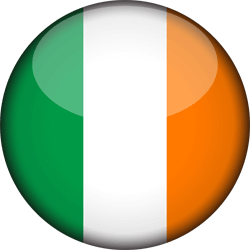MCAT
MCAT (Medical College Admission Test) tests the basic concepts in biology, general and organic chemistry, and physics. The exam also assesses capacity for problem solving and critical thinking as well as general writing skills. By testing for these varied skills, medical school faculty hopes to encourage undergraduates with broad educational backgrounds to consider careers in the health professions —as well as to identify those candidates most likely to be successful in the study of medicine. Today, all medical schools in the United States and most in Canada require applicants to submit recent MCAT exam scores. In addition, many other health professions and graduate programs accept MCAT exam scores in lieu of other standardized tests.If you plan on applying to a medical school in the United States, you need to the Medical College Admissions Test (MCAT). The MCAT is different from every other test you have ever encountered in your academic career. Unlike the knowledge-based exams from high school and college, where the emphasis was on memorizing information, the MCAT primarily emphasizes the thought process. It is a thinking test above all else.
Format The MCAT consists of four and three-quarter hours of multiple choice testing, plus one hour devoted to writing. With all of the administrative details and three breaks, your test day experience can last for more than six hours.
The test is divided into four timed sections always appearing in the same order: Verbal Reasoning, Physical Sciences, Writing Sample, and Biological Sciences. Every section is designed to measure the higher-order thinking skills necessary for success in medical school, including analytical reasoning, abstract thinking, and problem solving.
Taking the MCAT is an intensive experience to say the least. The vast amount of content, especially in the sciences, can be especially overwhelming for many people. Success on this difficult exam requires targeted and focused preparation.
What the MCAT's Really Testing Most people preparing for the MCAT fall prey to the myth that the MCAT is a straightforward science test. Well, here's the little secret no one seems to want you to know: The MCAT is not just a science test; it's also a thinking test. This means that the test is designed to let you demonstrate your thought process, not only your thought content. Every section on the MCAT tests essentially the same higher-order thinking skills: analytical reasoning, abstract thinking, and problem-solving--skills that are essential for success in medical school.
MCAT Scores and School Success A recent study commissioned by the MCAT's authors, the American Association of Medical Colleges (AAMC), confirmed a direct correlation between MCAT scores and success in medical school. Therefore, medical schools don't need to rely on the MCAT to see what you already know. Schools are most interested in your intellectual potential. They choose applicants carefully because expansive knowledge is not enough to succeed in medical school or in the profession. There's something more. And it's this" something more" that the MCAT is trying to measure.
The Sciences With this perspective, you may be left asking the question: "What about the science? What about the content? Don't I need to know the basics?" The answer is a resounding YES. You must be fluent in the different languages of the test. You cannot do well on the MCAT if you don't know the basics of Physics, General Chemistry, Biology, and Organic Chemistry. However, the key point here is that knowing these basics is just the beginning of doing well on the MCAT. That's a shock to most test takers. They presume that once they recall or re-learn their undergraduate science, they are ready to do battle against the MCAT. Wrong. They merely have directions to the battlefield. They lack what they need to beat the test: a copy of the test maker's battle plan.
Exam
| Physical Sciences | |
| Duration: | 70 Minutes |
| No of Questions: | 52 questions |
| Score: | The scores for the multiple-choice sections of Physical Sciences will be reported on a scale ranging from 1 (lowest) to 15 (highest). |
| Verbal Reasoning | |
| Duration: | 60 Minutes |
| No of Questions: | 40 questions |
| Score: | The scores for the multiple-choice sections of Verbal Reasoning will be reported on a scale ranging from 1 (lowest) to 15 (highest). |
| Question Type: | Comprehension; Evaluation by Judging the relevance of information to an argument or claim; Application by using the given information to solve a specified problem; Incorporation of new information. |
| Writing Sample | |
| Duration: | 60 minutes |
| Score: | Your raw score on the Writing Sample is determined by adding the scores you receive on each of the two responses you write. Because two different readers rate each response, your total raw Writing score is the sum of the four scores: two for the first response and two for the second. From the raw scores the scale scores are calculated which appear on your final score report. |
| Biological Sciences | |
| Duration: | 70 minutes |
| No of Questions: | 52 questions |
| Score: | The scores for the multiple-choice sections of Biological Sciences will be reported on a scale ranging from 1 (lowest) to 15 (highest). |
| Min Qualification: | 10+2 |
| Qualifying Subject(s): | The test may be taken any time after the student has finished (or is within a few weeks of finishing) one year of Introductory Biology, Inorganic Chemistry, Organic Chemistry, Introductory Physics. |
| Exam Date: | The MCAT exam is administered multiple times from late January through early September, and offered at hundreds of test sites in the United States, Canada, Nigeria, etc |

STUDY IN AUSTRALIA

STUDY IN USA

STUDY IN UK
OUR PROGRAMMES

GMAT
Overseas Admission Consult(Oversac) has never and will never encounter any problem in registering students for the test .

ACT
A few months ago, James Ashley took the SAT. The SAT(Scholastic Aptitude Test)has long been the standard exam for those applying to universities in the US

GRE
Our pass mark in GRE is 300 out of the total score of 340 in both verbal and quantitative sections of the test. While that of the analytical writing section is at least 4

IELTS
IELTS … is divided into four sections of reading, listening, speaking and writing. We ensure each student has at least a score of 8 out of the total band of 9

PTE
All students applying to study in US, UK, Canada and any other English speaking country can take the PTE Academic test to prove their English

TOEFL
Our faculty ensures each student has a score of at least 95 out of the 120 mark allotted to the test. Many of our students have been performing

CAMBRIDGE GCE
At Overseas Admission Consult, we prepare students for the General Certificate of Education (GCE) Advanced Level qualification.

CGFNS
In order to obtain licensure as a nurse (RN or LPN/LVN) in the United States , it is important to note that licensure requirements differ from state to state

CIPMN
The Chartered Institute of Personnel Management of Nigeria (CIPMN) was established in 1968. The cradle of the Institute was the department of Management Studies,

SAT
Scholastic Aptitude Test (SAT) is divided into verbal, quantitative and analytical writing sections. Each area is handled by a lecturer who is a specialist in the section concerned

MCAT
MCAT (Medical College Admission Test) tests the basic concepts in biology, general and organic chemistry, and physics. The exam also assesses capacity for problem solving

PASSPORT
As a Nigerian citizen, there are certain international examinations you do that require your international passport and certain countries which do not require a visa upon entry so long

STUDY IN IRELAND

STUDY IN ESTONIA

STUDY IN CANADA
